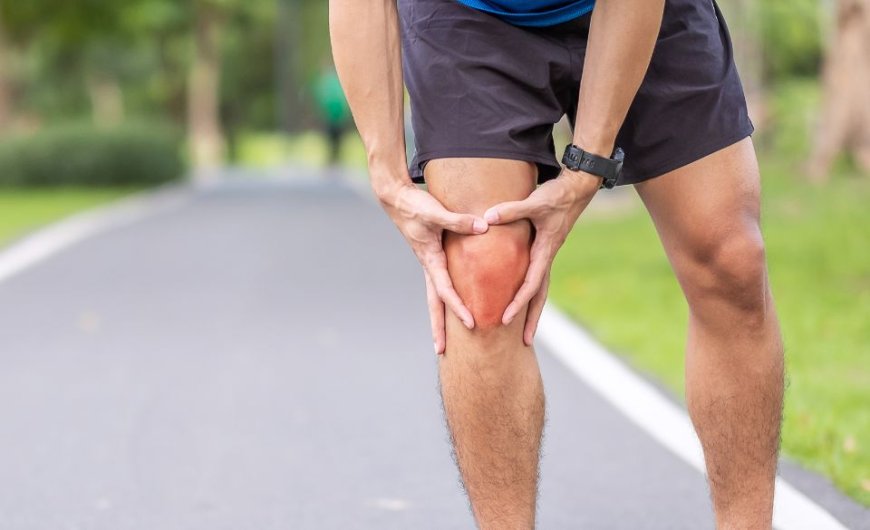Possible Causes Of Knee Clicking - Premier Pain Centers
Learn the possible causes of knee clicking, including injuries, cartilage wear, and joint problems. Get expert diagnosis and care at Premier Pain Centers.

Knee clicking is a common complaint among adults, especially those who lead an active lifestyle. Clicking sounds in the knee can be caused by a range of factors and may indicate underlying issues that require medical attention.
While some people experience knee clicking without any pain or discomfort, others report experiencing pain or stiffness alongside the clicking sound. Knee clicking can occur during various activities such as walking, running, climbing stairs, or squatting. In some cases, knee clicking may also be accompanied by swelling or instability in the joint.
Causes of Clicking in Knee
Knee clicking is a common problem that affects millions of people worldwide. It is characterized by a popping or cracking sound that occurs when you bend or straighten your knee joint. While some people may experience occasional clicking without any noticeable pain or discomfort, others may feel significant pain and stiffness in their knee.
There are several potential causes of knee clicking, including injury, overuse, arthritis, and other medical conditions. Understanding the underlying cause of your clicking can be essential to finding an effective treatment plan that will help you alleviate your symptoms and improve your overall quality of life.
-
Ligament Injuries
Ligament injuries are one of the most common causes of clicking in the knee. The knee is a complex joint made up of several bones, ligaments, tendons and muscles. A healthy knee has a cartilage cushion that allows for smooth movement as the bones glide over each other. However, when there is damage to any of these structures, it can cause clicking or popping sounds.
The two main ligaments that can be injured in the knee are the anterior cruciate ligament (ACL) and the medial collateral ligament (MCL). ACL injuries typically occur during sports activities or sudden movements that involve twisting or pivoting motions. An MCL injury may result from direct impact to the outside of the knee or from twisting forces on the inside of the joint.
-
Meniscus Tear
Ligament injuries are a common cause of clicking in the knee. Ligaments are tough, fibrous tissues that connect bones to each other and provide stability to the joint. When these ligaments become stretched or torn due to an orthopedic injury, they can no longer hold the joint in place properly. As a result, the bones can shift or rub against each other, causing a clicking sound.
The most commonly injured ligaments in the knee include the anterior cruciate ligament (ACL), medial collateral ligament (MCL), and lateral collateral ligament (LCL). These injuries typically occur during sports-related activities that involve sudden changes in direction or impact to the knee. Symptoms of a ligament injury may include pain, swelling, instability, and clicking sensations when moving the knee joint.
-
Patellofemoral Syndrome
Patellofemoral Syndrome is a common condition that causes knee pain and discomfort. It occurs when the patella, or kneecap, does not move properly over the femur bone in the thigh. This can cause clicking or popping sounds when bending or straightening the knee. While it is often seen in athletes and active individuals, anyone can develop Patellofemoral Syndrome.
If you are experiencing clicking in your knee, it's important to see a doctor for an evaluation. They will be able to diagnose if Patellofemoral Syndrome is the cause of your symptoms through a physical examination and imaging tests such as x-rays or MRI scans. Treatment options may include rest, physical therapy exercises, or even surgery in severe cases.
-
Soft Tissue/Scar Tissue
Knee pain is a common complaint among people of all ages. The knee joint is responsible for bearing the weight of the body and facilitating movement, making it particularly vulnerable to injury. One common cause of knee pain is soft tissue damage, which can result in scar tissue formation that may cause clicking or popping sounds when moving the joint.
If you experience clicking or popping in your knee, it’s important to seek medical attention from a knee pain doctor who can diagnose the underlying cause and recommend appropriate treatment. Soft tissue injuries such as ligament tears or meniscus damage can result in scar tissue formation, which can interfere with smooth joint movement and lead to clicking sensations. Other causes of clicking knees include patellar tracking disorder and osteoarthritis.
-
Osteoarthritis
Osteoarthritis is a common condition that affects millions of people worldwide. It is characterized by the degeneration of joint cartilage and bone, which can lead to pain, stiffness, and swelling. One of the most common symptoms of osteoarthritis in the knee is a clicking sound when moving the joint. While this may not seem like a significant problem, it can be indicative of underlying damage or wear and tear within the knee.
If you are experiencing clicking in your knee, it's essential to seek medical attention from a knee pain doctor as soon as possible. A professional evaluation and diagnosis can help determine if osteoarthritis is causing your symptoms or if there may be another underlying issue at play. In many cases, early intervention can prevent further damage and provide effective treatment options to manage your condition.
When Should I be Concerned About Clicking in Knee?
Clicking in the knee is a common problem that many people face. The sound can be audible and accompanied by discomfort or pain, depending on the severity of the condition. While some clicking may be harmless, it's important to know when you should see a knee pain doctor for evaluation.
If your clicking sound occurs after an injury or trauma to the knee, it could indicate a significant issue like ligament damage, meniscus tear or cartilage injury. In these cases, you should seek medical attention immediately as leaving these injuries untreated could lead to chronic pain and instability in the joint.




































































































![Building A Digital PR Strategy: 10 Essential Steps for Beginners [With Examples]](https://buzzsumo.com/wp-content/uploads/2023/09/Building-A-Digital-PR-Strategy-10-Essential-Steps-for-Beginners-With-Examples-bblog-masthead.jpg)















































